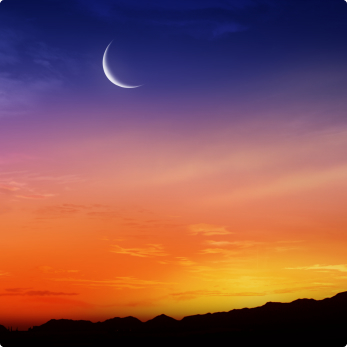The Israel365 Guide
TO HEBREW MONTHS AND JEWISH HOLIDAYS
Overview
The Bible introduced a calendar with festivals and holidays occurring throughout the year, at God’s appointed times. This Hebrew or Jewish calendar is still in use in Israel today and operates according to the solar and lunar cycles, and is different from the secular, or Gregorian calendar, named after Pope Gregory.
A new movement marking the growing ways many Christians are moving closer to their Biblical roots is calling for Christians to switch from the Gregorian calendar to the Hebrew calendar.
Every secular date has a corresponding Hebrew date, and each Hebrew month of the year has special, spiritual qualities. For example, Purim falls out in the month of “Adar” and since the Jews were rescued in the Scroll of Esther in Adar, it is known as a very joyous month. Passover falls out in the month of “Nissan” and since it is the month of the exodus from Egypt, it still contains elements of redemption to this very day.
Jews count years from the creation of the world, and so the year 2021 corresponds to the Hebrew year 5781, and there are many Jewish teachings that attach deep and mysterious meaning to the year 6,000 when we anticipate that the Messiah (Moshiach in Hebrew) will arrive by that time. However, there are some in Israel today, who believe that there is an error in the Hebrew calendar calculations.
Israel365 has prepared a guide to the Hebrew months and Jewish holidays for you to have a deeper understanding of God’s timing.

Shabbat
Shabbat/Sabbath (שַׁבָּת in Hebrew)
Shabbat is the seventh day of the Hebrew week, commemorating the seventh and final day of Creation when God “rested” from creating, as it says in the Hebrew Bible:
“On the seventh day Hashem finished the work that He had been doing, and He ceased on the seventh day from all the work that He had done. And Hashem blessed the seventh day and declared it holy, because on it Hashem ceased from all the work of creation that He had done.” (Genesis 2:1-2)
Shabbat is also a commemoration of the Exodus from Egypt, and “a taste of the World to Come.” These three aspects bind the Creation of the world, the creation of the People of Israel, and the ultimate perfected state of the world into a weekly experience.
The word ‘Shabbat’ means ‘rest,’ and is known as ‘Saturday’ or ‘the Sabbath’ by the rest of the world.
This weekly holiday begins slightly before sunset on Friday night, and ends upon the emergence of three medium-sized stars in the sky on Saturday night.
Shabbat is celebrated with special community prayers, festive family meals, Torah study, and refraining from 39 categories of creative labor. Stepping away from the responsibilities of the world allows us to focus on our relationship with Hashem, our families, and community.
The unbreakable connection between the People of Israel and Shabbat through the millennia can be summed up by the famous saying, “More than the Jewish people have kept Shabbat, Shabbat has kept the Jewish people.”

Rosh Chodesh / New Moon
Rosh Chodesh/Head of the Month (רֹאשׁ חֹֽדֶשׁ in Hebrew)
The Hebrew months, as the word “month” implies, go according to the moon, the lunar cycles. The first day of each Hebrew month is called Rosh Chodesh, which means “head of the month.” The word “chodesh” comes from the root “new” or “renewal,” referring to the new moon.
“Hashem said to Moshe and Aharon in the land of Egypt: This month shall mark for you the beginning of the months; it shall be the first of the months of the year for you.”
“And on your joyous occasions—your fixed festivals and new moon days—you shall sound the trumpets over your burnt offerings and your sacrifices of well-being. They shall be a reminder of you before your God: I, Hashem, am your God.” (Numbers 10:10)
“Blow the shofar on the new moon, on the full moon for our feast day. For it is a law for Yisrael, a ruling of the God of Yaakov; He imposed it as a decree upon Yosef when he went forth from the land of Egypt…” (Psalm 81:4-6)
Since Rosh Chodesh was the first commandment given to the People of Israel before the Exodus, it is considered a minor festival. The main public observances include a public recitation of Hallel (Psalms 113 – 118), and a special Torah reading.
Many people also prepare celebratory meals and wear slightly more formal clothing in honor of the day.





